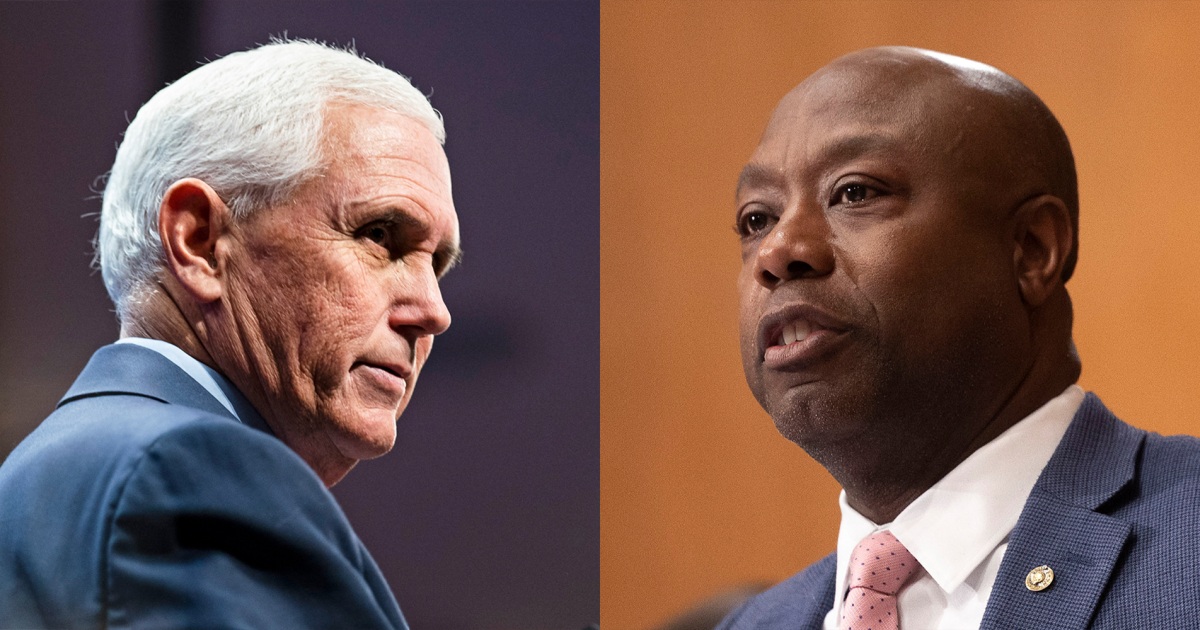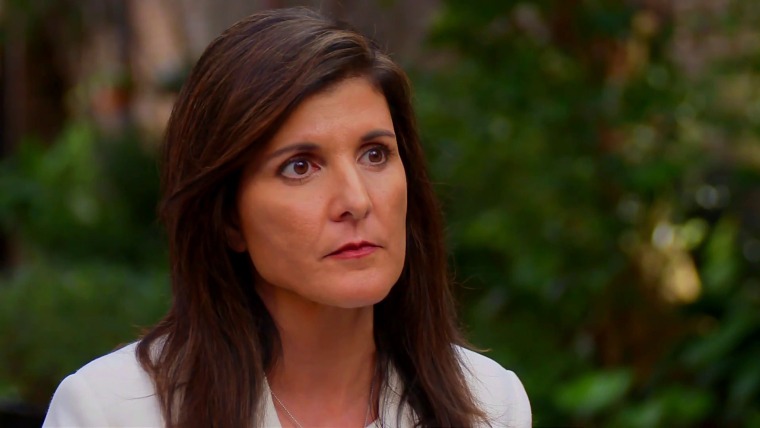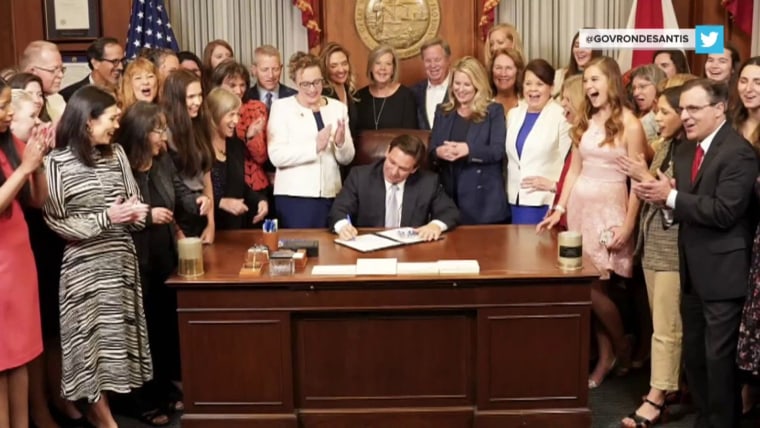

WASHINGTON — Republican presidential contenders are struggling with the abortion issue early in the campaign, as they walk a tightrope between a party base that favors outlawing the procedure and a majority of the U.S. that wants it to remain legal in most cases.
The issue has become more challenging for the GOP to navigate after an intense backlash to the overturning of Roe v. Wade last summer, which has hurt Republicans in numerous elections since, and the more recent lawsuits challenging access to the abortion pill mifepristone. The latest difficulties for Republican 2024 hopefuls reveal a party still trying to figure out how to use its newfound legal power granted by the Supreme Court to restrict abortion nationally.
The newest contender to launch a 2024 exploratory committee, Sen. Tim Scott, R-S.C., toured Iowa and New Hampshire this week and told WMUR he’d “definitely” sign a 20-week abortion ban. But he didn’t say if that was his threshold, and when asked separately if he’d support a federal prohibition, he sidestepped.
“I would simply say that the fact of the matter is, when you look at the issue of abortion, one of the challenges that we have — we continue to go to the most restrictive conversations without broadening the scope,” Scott said in New Hampshire. “I’m 100% pro-life, I never walk away from that. But the truth of the matter is when you look at the issues on abortion, I start with a very important conversation.”
From there, Scott evoked an exchange he had with Treasury Secretary Janet Yellen about the impact of abortion on labor participation for African American women.
In an interview that aired one day earlier, Scott dodged multiple questions from CBS News about whether he supports federal limits on abortion, instead criticizing proponents of legal abortion.
“I do think we spend not enough time understanding how far the far left has gone on the issue of abortion,” he said. When asked if being “100% pro-life” means he favors federal restrictions, Scott responded: “That’s not what I said.”
Scott isn’t alone. Other Republican contenders have also sought to avoid taking a clear position on abortion and instead attacked liberals as the real extremists for pushing broad protections without restrictions late in pregnancy that surveys say are popular. Democrats say the government should stay out of the issue and leave abortion decisions up to women and their doctors.
Nikki Haley, the former South Carolina governor and United Nations ambassador, would not say after launching her presidential campaign whether she’d sign the federal ban on abortion after 15 weeks that has been proposed by her fellow South Carolinian, Sen. Lindsey Graham.
“We need consensus on this,” Haley told NBC’s “TODAY” show in February. “If we’re lookingat 15 weeks, what we need to understand is we are not OK with abortion up until the time of birth. And so we should at least decide: When is it OK?”
Former Vice President Mike Pence, a devout Christian and conservative who has long been at the forefront of the fight to restrict abortion, came out for abortion restrictions across every U.S. state after the Supreme Court after Roe fell.
But even Pence, who has been visiting early states and taking steps toward a presidential run, is grappling with where to draw the line.
In an interview last month with the New Hampshire-based WMUR, Pence was repeatedly asked whether he supported a state bill in South Carolina that would allow the death penalty for women who have an abortion. He pivoted first to say he supports “pro-life measures” nationally.
But when the interviewer followed up to ask him if such laws encourage a culture of life, Pence demurred.
“I must tell you that I’m not familiar with those proposals and I don’t have a way of responding to that or confirming it,” he said.
His remarks immediately drew a backlash from the local Planned Parenthood, which supports abortion rights and labeled his rhetoric “dangerous.”
Pence’s team later issued a clarification to WMUR, saying he reviewed the legislation and doesn’t support it.
Florida Gov. Ron DeSantis, who has also taken steps to run for president and is seen by many as the main alternative to former President Donald Trump, hasn’t made the issue a focal point so far. But that could change. On Thursday, the Florida Legislature passed an abortion ban after six weeks of pregnancy, which DeSantis quietly signed into law that same day.
Meanwhile, Trump, the GOP front-runner, has largely steered clear of the issue since the fall of Roe, despite his role in picking three Supreme Court justices who voted to overturn the landmark ruling.
The caution comes amid a flurry of activity driven by Republicans across the country that continues to keep abortion on the radar.
Last week, Idaho became the first state to restrict out-of-state travel to get an abortion while a GOP-appointed judge invalidated the Food and Drug Administration’s approval of mifepristone, sparking a legal fight at the appeals court.
Former Ohio Gov. John Kasich, who ran for the GOP presidential nomination in 2016, said the party should be willing to compromise, perhaps by endorsing legal abortion until the third trimester.
“I think that there’s a good possibility of trying to reach some kind of a reasonable compromise,” Kasich said on MSNBC. “It’s the way that, frankly, they need to resolve this issue.”
“The first flash of this was Kansas,” he said, citing the vote to protect abortion rights in the deep-red state last year, which presaged the GOP’s underperformance in the 2022 elections. “The party’s got to figure that out. The same way they’ve got to figure out guns.”


